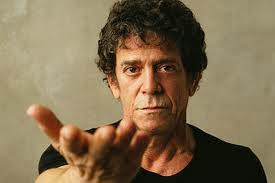My Lou Reed Post
 |
| Lou Reed, 1942 - 2013 |
Lou Reed is gone, and he deserved every drop of the considerable ink he has received over the last few days. Most of the stories, though, relied on a couple of leads to explain him, both of which were a bit limited: one was that he was surly with journalists and the other was that the person writing the story was hugely influenced by the Velvet Underground during his or her's formative years. The first mostly seems relevant for other writers, who can be touchy, understandably, when their brethren are dissed. I would be more curious about how he treated the people in his life, but that's not something we know much about, which is fine with me.
The second is fairly interesting, since the VU was indeed influential. As many stories noted, Eno or someone like him said that the VU only had 30,000 fans, but all of them started bands. In a way, Reed was like Dylan in this regard. How many heard Dylan and said, "I can do that!" Learn some folk and blues chords and then spray some poetic images all around them, and voila. In Reed's case, people saw they could come up with a chugging, minimalist rock groove seasoned with distortion, talk-sing some lyrics about life as it is, especially for denizens of our moral and social fringes, and deliver with attitude and supreme assurance: a nice recipe for a lot of the new wave and punk that followed.
My favorite instance of Reed's stripped down genius is his song about copping drugs, "I'm Waiting for the Man," with its pitch perfect snatch of dialogue, "Hey white boy, what you doin' uptown," and the incisive couplet, exploding with verisimilitude, "He's never early, he's always late / First thing you learn is you always have to wait." Indeed. How many people heard that and decided to try their hand at writing, too? I mean, how hard is that? Hard enough.
What's really cool about both Dylan and Reed is that even with so many legions of followers, no one else ever sounded quite like them. That's because both are geniuses. They express themselves in ways that are at once universal and sui generis.
As for me, well, I wasn't one of those hip seventeen year olds obsessing over the VU with friends. No, all the way through college my friends and I listened mostly to stuff like the Allman Brothers, Led Zeppelin, the Stones, Blue Oyster Cult, and so forth, along with some country-rock, prog-rock, and jazz-fusion. We were the template for that movie Dazed and Confused. To the extent that we listened to Lou Reed, we mostly got it through Rock and Roll Animal. Curiously, one of my roommates was into the New York Dolls, so there was that.
As fortune would have it, my true entry into Reed's work commenced at the time of his great mid-career purple patch that began in 1982 with The Blue Mask and extended through New Sensations and the album New York. This was the time for Reed's identity as a musician as opposed to a transgressive, sexually ambiguous figure to come to the fore. So that's how I really got to know Reed. At this point his band included the guitar virtuoso Robert Quine and the bassist Fernando Saunders, who would perform with Reed for the rest of Reed's career. Saunders' tone is so musical and melodic, not like anything you would associate with punk. He sounds a bit like a mix of Jaco Pastorius and Paul McCartney, actually.
So if you are interested in Lou Reed, understand that long after the transgressive Lou vanished from the scene, the musical Lou remained, which is who he was before the scene as well.
UPDATE: 11-5
Reed's musicality, of course, includes his excellent guitar playing, distinguished by the sculpting of feedback. He also worked as a professional Tin Pan Alley type of songwriter for a while, too, in the early 60s, which means that his transgressiveness was often grounded in sweet melodies and doo wop chords: a nice combo.
Comments
Post a Comment